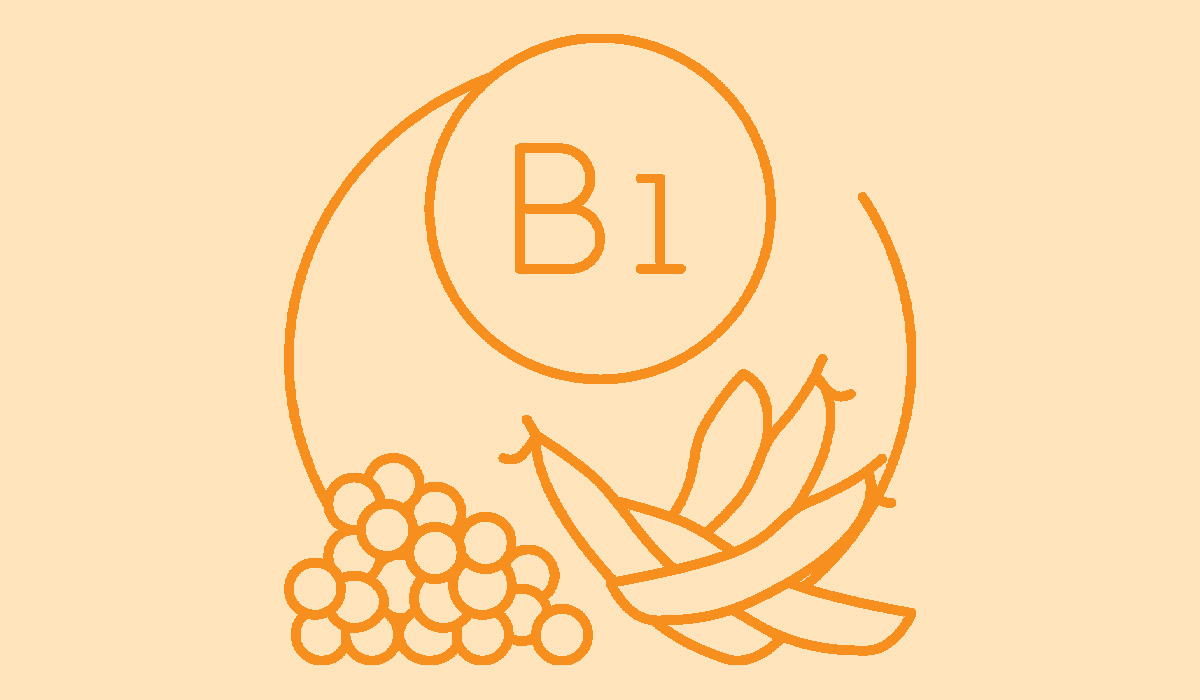
can lead to serious health problems. That’s why people need to get this nutrient regularly, since the human body can’t make it on its own.
Functions
Our bodies need vitamins since these compounds help keep vital processes running smoothly. B vitamins are particularly important, and each has a specific function. Thiamine supports many systems, including the immune system, and participates in various enzymatic reactions, thus influencing numerous processes in the body. Find out exactly how vitamin B1 works and why it is essential for health.

Strong Immune System
Vitamin B1 can increase the body’s protection by improving the functioning of the immune system. This is due to its effect on glucose metabolism. It supports proper intestinal peristalsis, which is closely related to immunity. Moreover, this remarkable element has antioxidant properties essential for fighting disease and improving the body’s overall resistance to stress.
Nervous System Health
Daily consumption of thiamine boosts the nervous system. This is thanks to the optimal metabolism that the vitamin provides. It converts carbohydrates into energy, which the brain needs to function correctly. What is more, this compound is involved in the formation of myelin sheaths, i.e., the protective layer covering the nerves. This protects against neurological diseases such as polyneuropathies or multiple sclerosis. Thiamine also boosts cognitive function, helping us to concentrate better. It also improves memory and mood. People sometimes call this compound the anti-stress vitamin because it helps prevent depression, anxiety, and fatigue.
Heart Health
Vitamin B1 affects many important body areas, including the brain and the heart. It helps maintain the proper functioning of heart muscle cells, which promotes cardiovascular health and may support the treatment of heart disease. In addition, it participates in the production of acetylcholine. This key substance is a neurotransmitter that enables communication between nerves and muscles, including the heart. Thanks to this, vitamin B1 affects both mental performance and proper heartbeat.
Food Sources of Vitamin B1
Thiamine is a component of many natural products. It is worth including them in your daily diet. The human body cannot produce this vitamin on its own, so it needs to obtain it from external sources. However, meat and fish products can easily provide large amounts of thiamine. But if you prefer a vegan diet, this nutrient is also in whole grains and nuts.
What’s more, some food manufacturers add vitamin B1 to the products you find on shop shelves. In addition, when it is difficult for a patient to maintain a good level of vitamin B1 or when they need larger amounts, they can also take supplements. However, it is best to do so under the supervision of a doctor.

Dosage
Every human body needs vitamin B1 to stay healthy. However, the amount depends on many factors, such as age, gender, and overall health. Experts suggest that the daily intake of this nutrient should be 1.2 mg/day for adult men and slightly less (1.1 mg/day) for adult women, unless they are pregnant, in which case they need more of this ingredient, as much as 1.4 mg per day. For children, the dose must be adjusted specifically to their age, as infants are recommended to take 0.2 mg of vitamin daily, and then the amount gradually increases with age. Seniors should also ensure they get adequate amounts of this vitamin, as they often have deficiencies.
Deficiency
Although uncommon in developed countries, vitamin B1 deficiency can affect people who face certain risk factors. These include seniors and patients with chronic conditions such as HIV infection, diabetes, liver disease, diseases that interfere with nutrient absorption, and eating disorders. Vitamin B1 deficiency is also strongly associated with alcoholism. Long-term abuse of alcoholic drinks leads to a reduction in the body’s ability to utilise this element.
Severe deficiency can lead to Wernicke-Korsakoff syndrome, known as Korsakoff’s amnesia syndrome. This condition damages the nerves, but proper treatment can help improve symptoms, although the damage is not always fully reversible.
Symptoms
Vitamin B1 deficiency can range from mild to severe. The symptoms can be confused with other conditions, so it is also worth testing vitamin levels during diagnosis if the patient complains of problems such as weight loss, muscle weakness, and fatigue. Thiamine deficiency causes cognitive impairment because the brain does not receive enough energy due to impaired metabolism. This can lead to memory impairment, confusion, irritability, and mood deterioration.
In more severe cases, peripheral neuropathy may manifest through limb tingling, coordination problems, and sensory disturbances. Deficiencies also weaken the immune system, making patients more susceptible to infections. What is more, heart function also deteriorates, so rapid heartbeat and chest pain may occur, even after minor exertion. Other symptoms include blurred vision, uncontrolled eye movements, vomiting and nausea, insomnia, and sleep apnoea.

Treatment
First and foremost, the cause of the thiamine deficiency must be addressed. The patient should make lifestyle changes such as altering their diet, quitting alcohol, and reducing caffeine to support proper vitamin B1 absorption. Also, oral or intravenous supplements to make up for deficiencies can be helpful.
Overdose
Vitamin B1 is very important for health, so it is necessary to ensure adequate intake. However, is it possible to consume too much of it? According to specialists, an overdose of vitamin B1 is unlikely. This is because the human body does not store thiamine for very long. It uses it quickly, so large amounts can’t accumulate and cause damage.
Moreover, if we consume too much of this vitamin, we naturally excrete the excess in our urine within a few hours of consumption. For this reason, there is little cause for concern about overdose. Cases of severe vitamin B1 toxicity are very rare, and the risk is likely to be due to other medical conditions.
Contraindications
Specialists do not indicate any absolute contraindications to vitamin B1 supplementation. Patients generally tolerate it well, and it remains relatively safe to use. However, some people should exercise caution. Vitamin preparations sometimes contain various additional substances that may cause allergic reactions. Vitamin B1 itself also poses a risk of allergy. A few rare cases of anaphylaxis have occurred after intravenous use.
Sometimes, taking this element is also associated with side effects. After taking the preparation, symptoms such as urticaria, intestinal motility disorders, nausea, lethargy, or motor coordination disorders may occur.
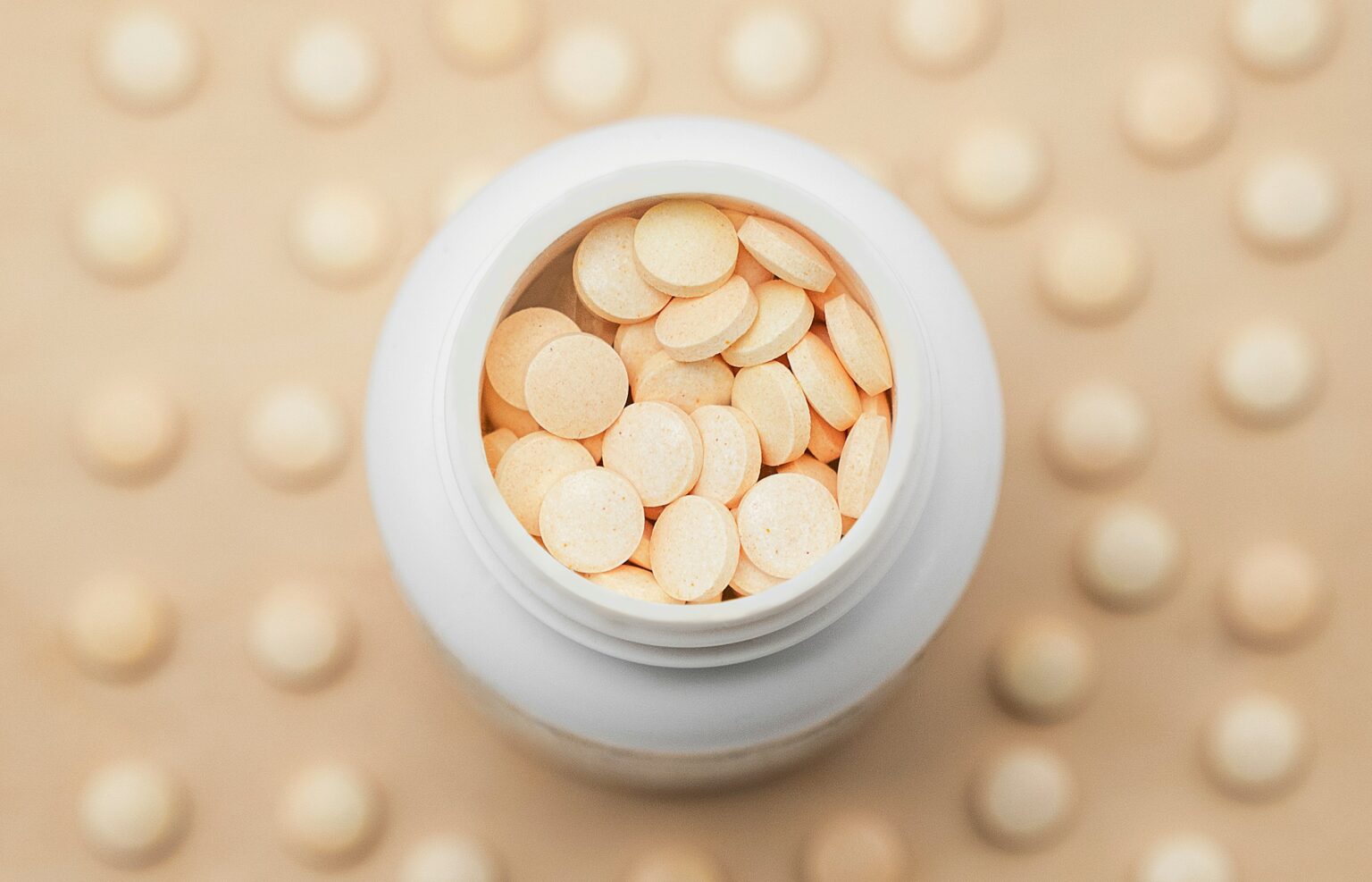
Before you start supplementation, also check whether the medicines you take regularly will affect the absorption of thiamine and vice versa. These medications include certain antibiotics doctors prescribe to treat sinusitis, pneumonia, throat and tonsil infections, and skin infections. They can cause a decrease in vitamin B1 in the body and reduce the amount of the supplemented element. In such cases, patients should replenish thiamine after they complete antibiotic therapy.
Another group of drugs that affects vitamin levels is diuretics. They support the urinary system, which, when overworked, can flush out thiamine and supplements. Therefore, it is best to discuss supplementation with your doctor to ensure that vitamin B1 levels in the body remain at the appropriate level.
Sources
- Kimberly D. Wiley, Mohit Gupta (2023). Vitamin B1 (Thiamine) Deficiency. https://www.ncbi.nlm.nih.gov/books/NBK537204/
- Julianna L. Martel, Harshit Doshi; Reddog E. Sina, David S. Franklin (2024). Vitamin B1 (Thiamine). https://www.ncbi.nlm.nih.gov/books/NBK482360/
- Institute of Medicine (US) Standing Committee on the Scientific Evaluation of Dietary Reference Intakes and its Panel on Folate, Other B Vitamins, and Choline. Washington (1998). Dietary Reference Intakes for Thiamin, Riboflavin, Niacin, Vitamin B6, Folate, Vitamin B12, Pantothenic Acid, Biotin, and Choline. https://www.ncbi.nlm.nih.gov/books/NBK114331/
Biotin: What Is, Uses, Biotin Deficiency, and Dosing
Multiple Myeloma: What Is, Causes, Warning Signs, and Treatment
Eosinophils: What Are, Anatomy, Functions, and Conditions
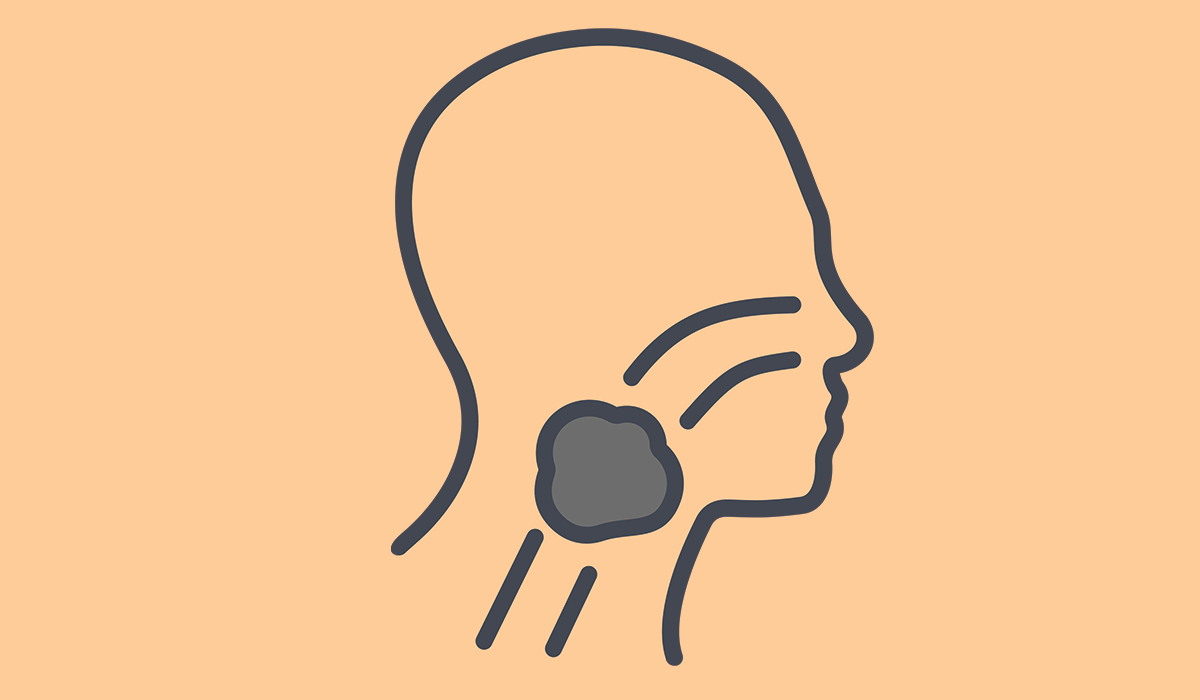
Throat Cancer
HPV: What Is, Causes, Diagnosis, and Treatment
Baker’s Cyst: What Is, Symptoms, Complications, and Treatment

Diarrhea
Vitamin A: What Is, Roles, Deficiency, and Excess
Basal Cell Carcinoma: What Is, Causes, Signs, and Diagnosis
Narcissistic Personality Disorder: What Is, Signs, and Types

Alzheimer’s Disease: What Is, Causes, Symptoms, and Tests
H Pylori: What Is, Symptoms, Diagnosis, and Treatment
Squamous Cell Carcinoma: What Is, Symptoms, and Treatment
Endocrinologist: Who Is, Endocrinology, and Different Kinds
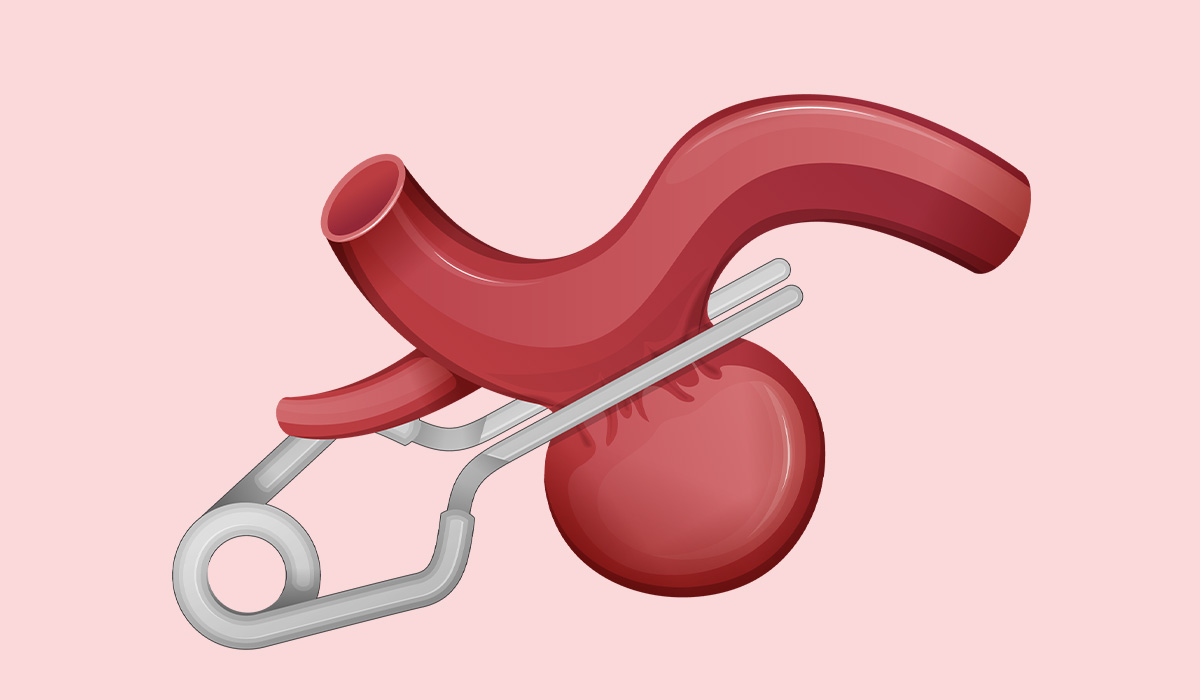
Aneurysm: What Is, Signs, Diagnosis, and Treatment
